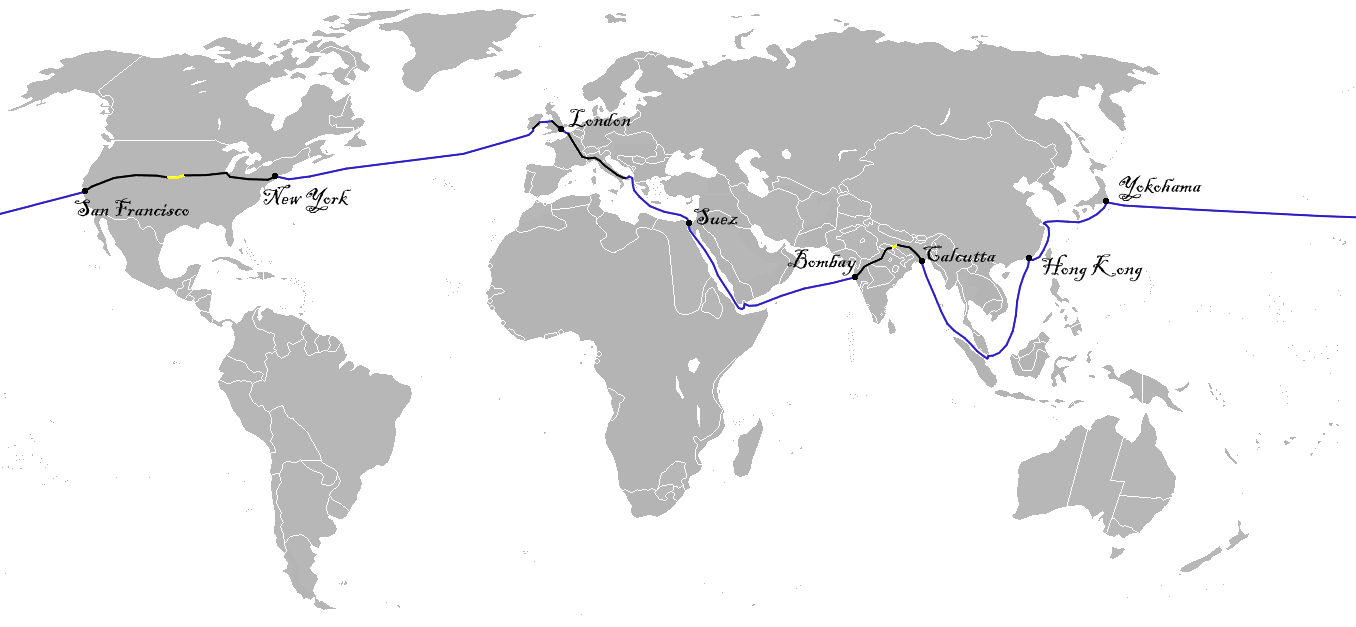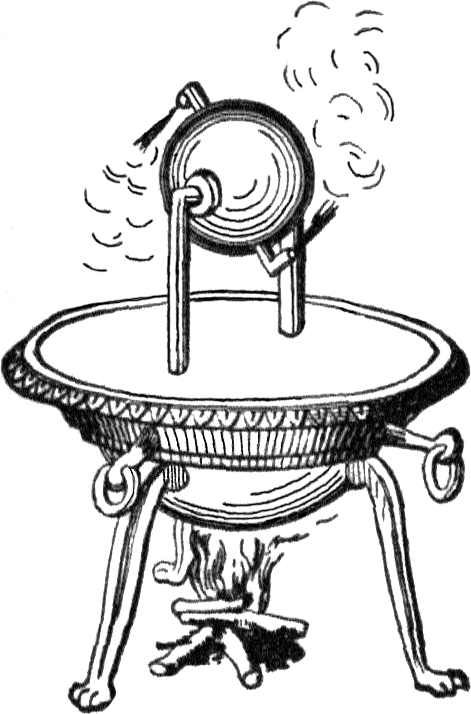|
Eighty
80 (eighty) is the natural number following 79 and preceding 81. In mathematics 80 is: * the sum of Euler's totient function φ(''x'') over the first sixteen integers. * a semiperfect number, since adding up some subsets of its divisors (e.g., 1, 4, 5, 10, 20 and 40) gives 80. * a ménage number. * palindromic in bases 3 (22223), 6 (2126), 9 (889), 15 (5515), 19 (4419) and 39 (2239). * a repdigit in bases 3, 9, 15, 19 and 39. The Pareto principle (also known as the 80-20 rule) states that, for many events, roughly 80% of the effects come from 20% of the causes... Every solvable configuration of the 15 puzzle can be solved in no more than 80 single-tile moves.A. Brüngger, A. Marzetta, K. Fukuda and J. NievergeltThe parallel search bench ZRAM and its applications ''Annals of Operations Research'' 90 (1999), pp. 45–63. In science * The atomic number of mercury In religion * According to Exodus 7:7, Moses was 80 years old when he initially spoke to Pharaoh o ... [...More Info...] [...Related Items...] OR: [Wikipedia] [Google] [Baidu] |
Around The World In Eighty Days
''Around the World in Eighty Days'' (french: link=no, Le tour du monde en quatre-vingts jours) is an adventure novel by the French writer Jules Verne, first published in French in 1872. In the story, Phileas Fogg of London and his newly employed French valet Passepartout attempt to circumnavigate the world in 80 days on a wager of £20,000 set by his friends at the Reform Club. It is one of Verne's most acclaimed works. Plot Phileas Fogg is a wealthy English gentleman living a solitary life in London. Despite his wealth, Fogg lives modestly and carries out his habits with mathematical precision. Very little can be said about his social life other than that he is a member of the Reform Club, where he spends the best part of his days. Having dismissed his valet for bringing him shaving water at a temperature slightly lower than expected, Fogg hires Frenchman Jean Passepartout as a replacement. On the evening of 2 October 1872, while at the Reform Club, Fogg gets involved in an a ... [...More Info...] [...Related Items...] OR: [Wikipedia] [Google] [Baidu] |
Eighty Years' War
The Eighty Years' War or Dutch Revolt ( nl, Nederlandse Opstand) ( c.1566/1568–1648) was an armed conflict in the Habsburg Netherlands between disparate groups of rebels and the Spanish government. The causes of the war included the Reformation, centralisation, taxation, and the rights and privileges of the nobility and cities. After the initial stages, Philip II of Spain, the sovereign of the Netherlands, deployed his armies and regained control over most of the rebel-held territories. However, widespread mutinies in the Spanish army caused a general uprising. Under the leadership of the exiled William the Silent, the Catholic- and Protestant-dominated provinces sought to establish religious peace while jointly opposing the king's regime with the Pacification of Ghent, but the general rebellion failed to sustain itself. Despite Governor of Spanish Netherlands and General for Spain, the Duke of Parma's steady military and diplomatic successes, the Union of Utrecht ... [...More Info...] [...Related Items...] OR: [Wikipedia] [Google] [Baidu] |
81 (number)
81 (eighty-one) is the natural number following 80 and preceding 82. In mathematics 81 is: * the square of 9 and the fourth power of 3. * a perfect totient number like all powers of three. * a heptagonal number. * a centered octagonal number. * a tribonacci number. * an open meandric number. * the ninth member of the Mian-Chowla sequence. * a palindromic number in bases 8 (1218) and 26 (3326). * a Harshad number in bases 2, 3, 4, 7, 9, 10 and 13. * one of three non-trivial numbers (the other two are 1458 and 1729) which, when its digits (in decimal) are added together, produces a sum which, when multiplied by its reversed self, yields the original number: : 8 + 1 = 9 : 9 × 9 = 81 (although this case is somewhat degenerate, as the sum has only a single digit). The inverse of 81 is 0. recurring, missing only the digit "8" from the complete set of digits. This is an example of the general rule that, in base ''b'', :\frac = 0.\overline, omitting only the digit ''b'' ... [...More Info...] [...Related Items...] OR: [Wikipedia] [Google] [Baidu] |
Pareto Principle
The Pareto principle states that for many outcomes, roughly 80% of consequences come from 20% of causes (the "vital few"). Other names for this principle are the 80/20 rule, the law of the vital few, or the principle of factor sparsity. Management consultant Joseph M. Juran developed the concept in the context of quality control and improvement after reading the works of Italian sociologist and economist Vilfredo Pareto, who wrote about the 80/20 connection while teaching at the University of Lausanne. In his first work, ''Cours d'économie politique'', Pareto showed that approximately 80% of the land in the Kingdom of Italy was owned by 20% of the population. The Pareto principle is only tangentially related to the Pareto efficiency. Mathematically, the 80/20 rule is roughly described by a power law distribution (also known as a Pareto distribution) for a particular set of parameters. Many natural phenomena distribute according to power law statistics. It is an adage of busin ... [...More Info...] [...Related Items...] OR: [Wikipedia] [Google] [Baidu] |
Natural Number
In mathematics, the natural numbers are those numbers used for counting (as in "there are ''six'' coins on the table") and ordering (as in "this is the ''third'' largest city in the country"). Numbers used for counting are called ''Cardinal number, cardinal numbers'', and numbers used for ordering are called ''Ordinal number, ordinal numbers''. Natural numbers are sometimes used as labels, known as ''nominal numbers'', having none of the properties of numbers in a mathematical sense (e.g. sports Number (sports), jersey numbers). Some definitions, including the standard ISO/IEC 80000, ISO 80000-2, begin the natural numbers with , corresponding to the non-negative integers , whereas others start with , corresponding to the positive integers Texts that exclude zero from the natural numbers sometimes refer to the natural numbers together with zero as the whole numbers, while in other writings, that term is used instead for the integers (including negative integers). The natural ... [...More Info...] [...Related Items...] OR: [Wikipedia] [Google] [Baidu] |
Atomic Number
The atomic number or nuclear charge number (symbol ''Z'') of a chemical element is the charge number of an atomic nucleus. For ordinary nuclei, this is equal to the proton number (''n''p) or the number of protons found in the nucleus of every atom of that element. The atomic number can be used to uniquely identify ordinary chemical elements. In an ordinary uncharged atom, the atomic number is also equal to the number of electrons. For an ordinary atom, the sum of the atomic number ''Z'' and the neutron number ''N'' gives the atom's atomic mass number ''A''. Since protons and neutrons have approximately the same mass (and the mass of the electrons is negligible for many purposes) and the mass defect of the nucleon binding is always small compared to the nucleon mass, the atomic mass of any atom, when expressed in unified atomic mass units (making a quantity called the "relative isotopic mass"), is within 1% of the whole number ''A''. Atoms with the same atomic number but dif ... [...More Info...] [...Related Items...] OR: [Wikipedia] [Google] [Baidu] |
AD 80
__NOTOC__ AD 80 (LXXX) was a leap year starting on Saturday (link will display the full calendar) of the Julian calendar. At the time, it was known as the Year of the Consulship of Augustus and Domitianus (or, less frequently, year 833 ''Ab urbe condita''). The denomination AD 80 for this year has been used since the early medieval period, when the Anno Domini calendar era became the prevalent method in Europe for naming years. Events By place Roman Empire * Emperor Titus completes and inaugurates the Colosseum with 100 days of games. * The earliest stage of Lullingstone Roman villa is built. * The Roman occupation of Britain reaches the River Tyne–Solway Firth frontier area. Gnaeus Julius Agricola creates a fleet for the conquest of Caledonia; he finally proves that Britannia is an island. * Legio II Adiutrix is stationed at Lindum Colonia (modern Lincoln). The city is an important settlement for retired Roman legionaries. * The original Roman Pantheon is destroyed i ... [...More Info...] [...Related Items...] OR: [Wikipedia] [Google] [Baidu] |
Tungsten Lighting
An incandescent light bulb, incandescent lamp or incandescent light globe is an electric light with a wire filament heated until it glows. The filament is enclosed in a glass bulb with a vacuum or inert gas to protect the filament from oxidation. Current is supplied to the filament by terminals or wires embedded in the glass. A bulb socket provides mechanical support and electrical connections. Incandescent bulbs are manufactured in a wide range of sizes, light output, and voltage ratings, from 1.5 volts to about 300 volts. They require no external regulating equipment, have low manufacturing costs, and work equally well on either alternating current or direct current. As a result, the incandescent bulb became widely used in household and commercial lighting, for portable lighting such as table lamps, car headlamps, and flashlights, and for decorative and advertising lighting. Incandescent bulbs are much less efficient than other types of electric lighting, converting less ... [...More Info...] [...Related Items...] OR: [Wikipedia] [Google] [Baidu] |

.jpg)



